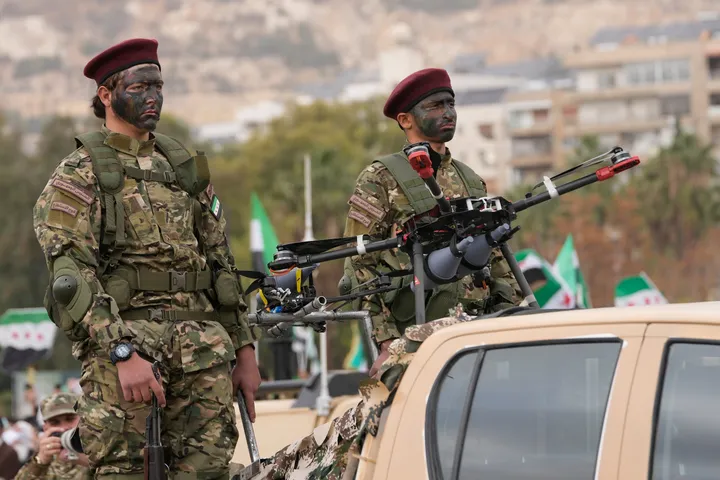Opponents of Libya's UN-backed government voted on Monday against a motion of confidence in the Tripoli-based administration.
The lawmakers gave prime minister-designate Fayez al-Sarraj a 10-day deadline to come up with a new unity government line-up, they said in a statement.
Backed by a UN deal signed in December, the Government of National Accord (GNA) has been seeking endorsement for months as it tries to extend its influence and authority beyond its base in Tripoli, in western Libya.
National support for the GNA is seen as crucial to restoring stability and to tackling the Libyan branch of DAESH, which pro-GNA forces are battling in Sirte.
Western powers have been counting on the GNA to tackle Libya's security vacuum, revive oil production and stem the flow of migrants crossing the Mediterranean to Europe. But power-brokers in the east say it is trying to undermine the military.
"The majority of lawmakers present at the parliament session voted no confidence in the government," said parliament spokesman Adam Boussakhra.
Parliament speaker Aguila Saleh along with all 101lawmakers attended Monday's vote, the assembly said on its website.
Spokesman Abdallah Bilhaq said 61 voted against the GNA, while 39 abstained and just one voted in favour.
A rival government in the east has refused to cede power until the House of Representatives passes a vote of confidence. Parliamentary sessions in the city of Tobruk have been repeatedly delayed or blocked as opposition to the GNA in eastern Libya has hardened
Monday's vote was "the first time quorum has been reached in five months," Boussakhra said.
After a vote postponement in February, 100 lawmakers in the 198-member legislature said they supported the GNA but had faced intimidation.
The parliament, in a statement approved by lawmakers who attended Monday's session, gave Sarraj a "last chance" to present a new line-up for a unity government within 10 days.
It called for "a consensus between members of the presidential council" of the GNA headed by Sarraj to select no more than eight to 12 candidates for the new cabinet.
Sarraj named a cabinet of 18 ministers in February, and four of them were dismissed last month because they never took office.
Mattia Toaldo, a Libya expert with the European Council on Foreign Relations, warned Monday's vote could lead to "a new institutional crisis" in the war-wracked country and called for "immediate international mediation".
"We will have to see if Sarraj and the members of the (House of Representatives) who support him will accept the legitimacy of the vote," he said.
The GNA last month moved into its official Tripoli offices, more than 100 days after starting to work from a naval base in the capital.
Since the prime minister-designate arrived in Tripoli on March 30, the GNA has won the loyalty of the central bank and national oil corporation -- depositors of the country's wealth -- as well as cities and armed groups in western Libya.
Backed by US air strikes, forces allied with the UN-backed government have captured more ground from DAESH in the centre of Sirte in recent days.
The GNA, the United Nations, and Western states have lobbied hard for a vote to be held, expressing frustration when parliamentary sessions in Tobruk were repeatedly delayed or blocked as opposition to the GNA in eastern Libya hardened.
But as forces aligned with the GNA advance to complete the recapture Sirte, the UN-backed government has lost support because of its inability to resolve a liquidity crisis, power cuts and other problems.
One reason for opposition to the GNA in the east is the reluctance of power holders there to grant the Tripoli government authority over military appointments.
Dominant eastern factions support forces led by General Khalifa Haftar, who has been waging a military campaign against DAESH and other opponents in Benghazi and parts of the east. They say the GNA is dependent on armed groups.
A political expert familiar with Libyan affairs told TRT World on condition of anonymity that General Haftar is backed by Egypt and the United Arab Emirates. He is considered a hero in the east, while his opponents western Libya depict him as a would-be dictator.
"We reject this government because it is waging a war against the institution of the military, and it wants to support the role of militias on the Libyan stage," GNA opponent Abubakr al-Ghazali remarked.
"The GNA lawmakers would now look to form a smaller government of national accord compatible with the leadership needs at this stage," he said.
A bloc of pro-GNA lawmakers that claims it represents about 100 deputies accused the government's opponents of hijacking the parliamentary process.
Libya descended into chaos after the 2011 revolution that toppled and killed former leader Muammar Gaddafi, with rival authorities vying for control of the country.
In 2014, an armed alliance took control of institutions in Tripoli and then the newly elected parliament relocated to eastern city of Tobruk.
























